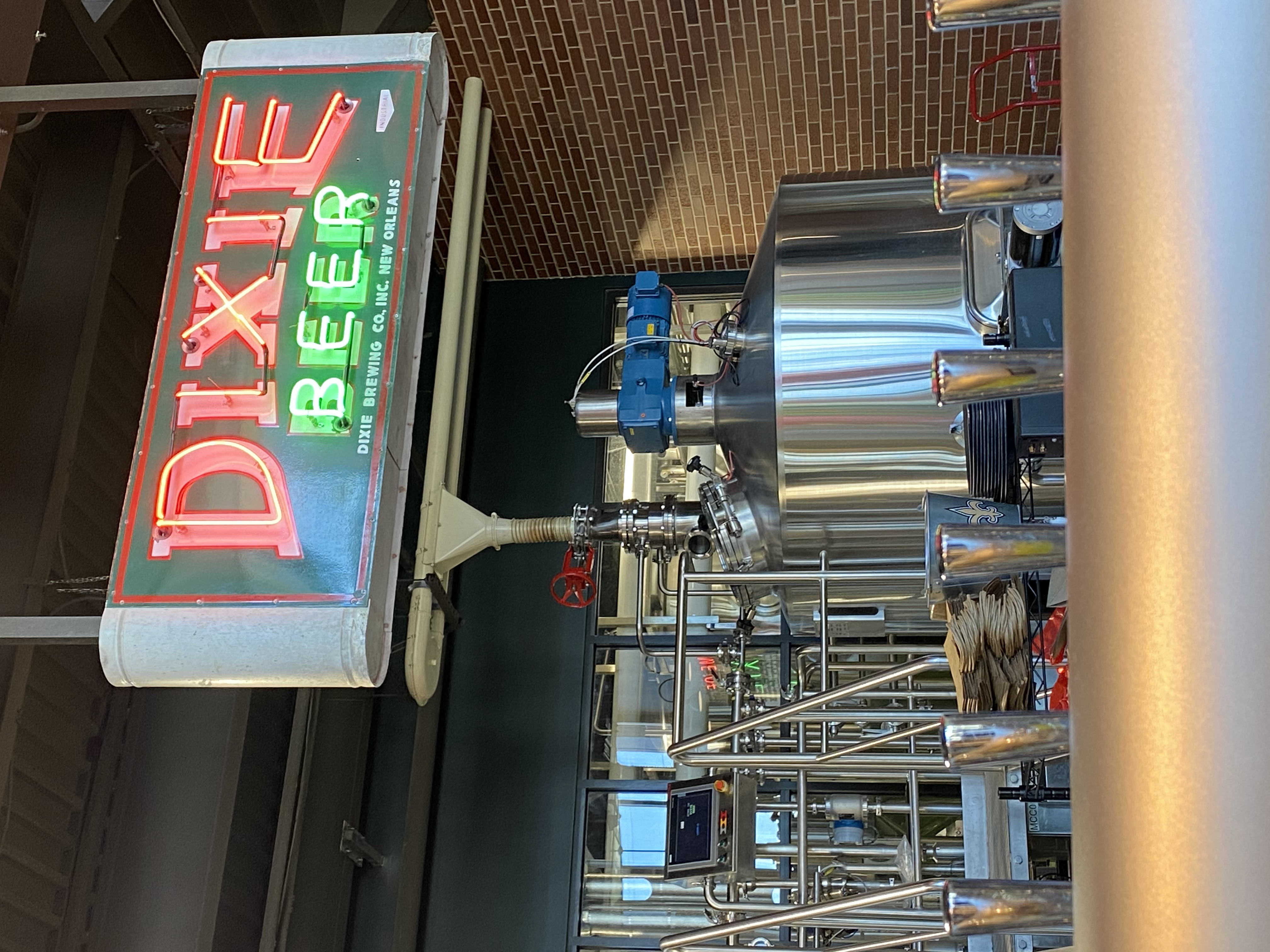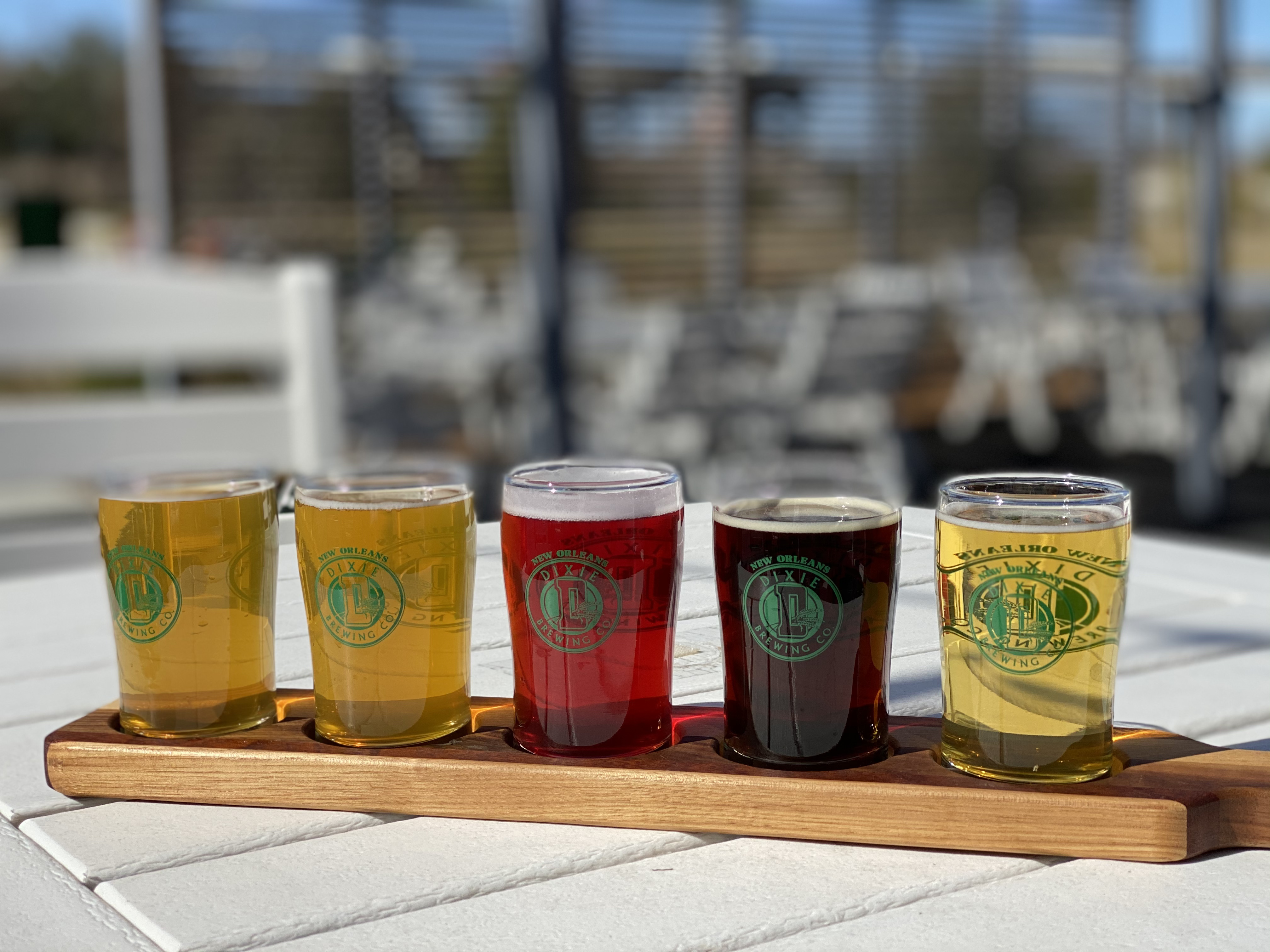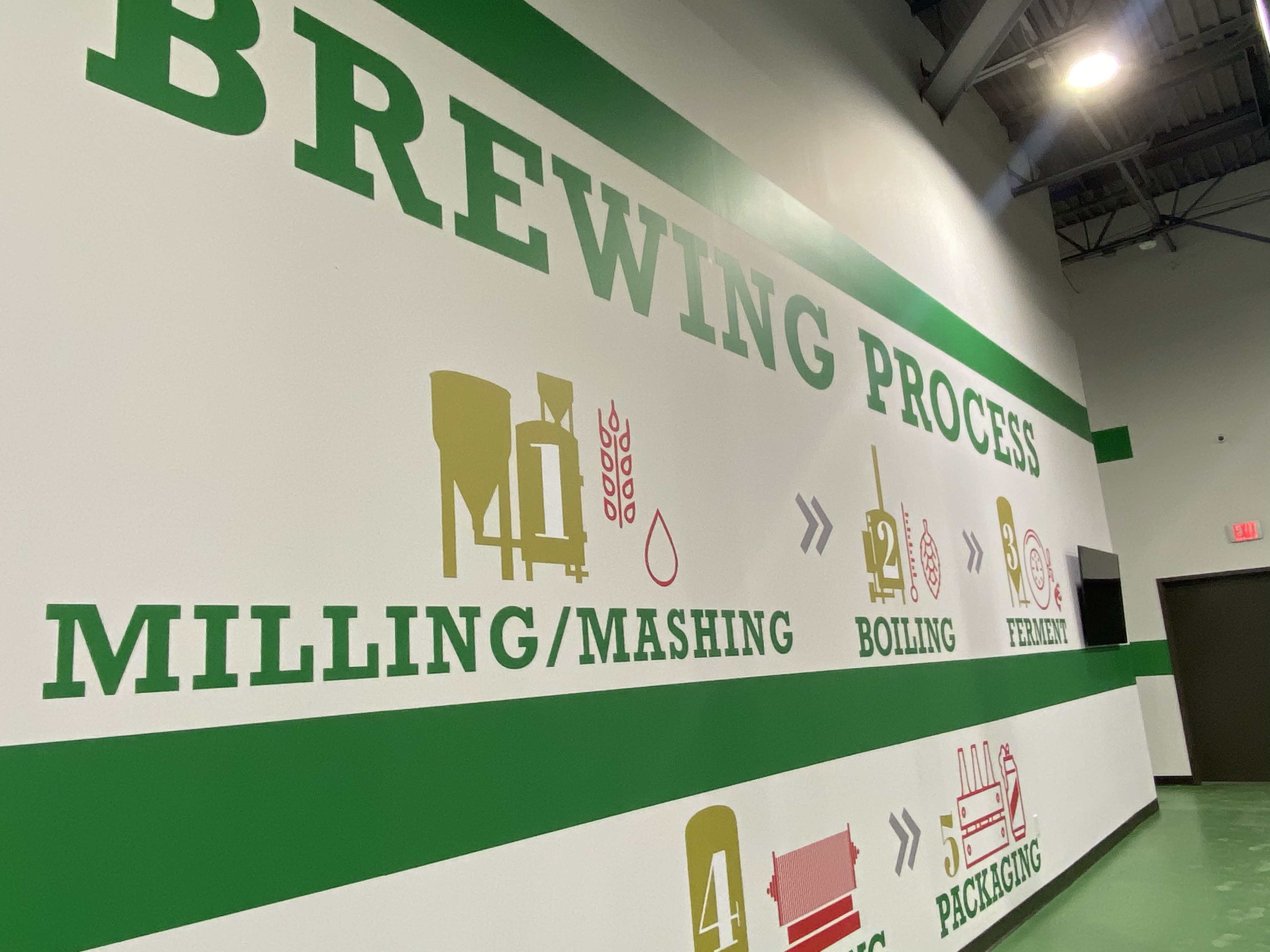Maybe you’ve heard it as Dixie Beer. Maybe you haven’t even heard of it before now. But soon, it will be known as Faubourg Brewing Co. Either way, it’s a good beer worthy of a try. So, grab a cold one, sit back, and hear a little of the history of this iconic New Orleans brewery.
Disclosure: Some links on our site are affiliate links. If you purchase a linked item, we will make a commission, at no extra charge to you.

New Orleans oldest operating brewery. In 1907, Valentine Merz establishes the South’s largest and most innovative brewery. To say they were met with enthusiasm would be an understatement. With a capacity of 75,000 barrels a year, the first entire output of kegs are contracted before a plant site is even secured.
With the passage of the National Prohibition Act, known informally as the Volstead Act, many breweries are forced to close their doors. Only beverages having less than 1% alcohol are permitted to be sold. Dixie stays open as a “beverage” company making “near beer”. But not all is as it seems. In June of 1921, Federal Regulators raid six New Orleans breweries. At Dixie, agents find 500 cases of beer and 120 casks. A little more than a year later, Dixie is caught again. Agents raid and seize the plant. Hundreds of kegs are confiscated. Indictments and guilty pleas follow. The plant is later sold at auction for $91,000 (a little over $157,000 today).
April 6th, 1933. A big day for New Orleanians. Beer is legal again and brewing begins in earnest. As breweries restart operations, several hundred jobs are created. Dixie alone puts 70 people back to work.
Dixie records strong sales through the ‘40’s and ‘50’s. In 1951, they brew and sell 156,867 barrels of beer. Or, about 39 million pints of beer. But, unfortunately all good things must come to an end.
In the ‘60’s, the rise of national breweries takes hold and Dixies sales decline. If that wasn’t bad enough, Dixie takes a bad hit when they produce a bad batch of 45,000 cases of off-tasting beer. The cause is fumes from a newly installed floor in the fermentation cellar permeating the product. While not dangerous to health, it was to their reputation.
The 1970’s are even harder for regional breweries. By 1979, Dixie is the only brewery left in the state of Louisiana.
In 1981, Dixie Light is introduced. While it buoyed sales, it proved to only be temporary and in 1982, 20% of Dixies workforce is laid off. 1983 brings the sale of the brewery to New Orleans based Coy International. Two years later, it is again sold to Joseph and Kendra Elliott Bruno to save it from failure and save a New Orleans tradition. As the new owner, Elliott becomes one of the few women to own and operate a brewery in the US. Unfortunately, with the rescinding of an excise tax exemption worth $750,000 per year, Dixie is forced to file Chapter 11 bankruptcy.
Many would call it quits at this point and none would blame them. But quit wasn’t in the blood of this brewery nor the owners. In 1990, Dixie creates Blackened Voodoo Lager, its first super premium beer to great reviews. Texas bans the sale of the beer because the name “smacks of witchcraft and cults”. The ban creates national media attention and a large demand. In early 1992, headlines read “Dixie Brews Itself Out Of Chapter 11 Bankruptcy”.

August 29th, 2005. A dark day in the history of New Orleans and the Gulf Coast. Hurricane Katrina slams the coast with 175 mph winds. New Orleans gets hit hard. The Dixie Brewery takes on over 10 feet of water decimating it. Down, but never out, Dixie secures a contract to brew out-of-state while researching alternatives in New Orleans. In two short years, Dixie is again found here as a sign of the city’s, and Dixies, perseverance.
In August of 2017, Dixie is reborn. Tom and Gayle Benson, owners of the New Orleans Saints and Pelicans, purchase a majority stake in the company. Committed to bringing Dixie back home, creating jobs and economic growth, and preserving the iconic brand.
By late 2019, all brewing production is restored to New Orleans. With a 100 barrel brewhouse and a 15 barrel craft system for the creation of new brews, an integral part of the city’s history is back.
In January 2020, Gayle Benson announced a contest to rename the brewery. The winning name hopes to honor the tradition of Dixie Beer, while encompassing the community. New Orleans has a deep French influence running through it and their new name, Faubourg says just that. “Neighborhood” in French. A proud brewery that always supported its community through all manner of disaster, man-made or natural.


Comments are closed.